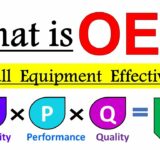In today’s rapidly evolving digital landscape, the world of financial transactions has experienced a remarkable transformation. This change has been fueled by the emergence of blockchain technology and decentralized finance (DeFi), which have opened doors to groundbreaking solutions that challenge conventional payment systems. Among these pioneering projects is REQ, a decentralized platform that seeks to democratize financial transactions. In this article, we will delve into the fascinating realm of REQ to explore how they are revolutionizing the way payments are conducted, empowering individuals with new financial opportunities, and fundamentally reshaping the future of the finance industry. If you are interested in crypto like Bitcoin, you must have a reliable trading platform such as the Immediate Bitcoin app.
The Rise of REQ: A Paradigm Shift in Payments
Understanding Traditional Payment Systems
Before we delve into REQ’s transformative potential, it’s crucial to comprehend the limitations of traditional payment systems. Historically, financial transactions have been reliant on intermediaries such as banks, payment processors, and clearinghouses. These intermediaries add complexity, fees, and potential vulnerabilities to the process, leading to inefficiencies and exclusion of marginalized communities.
Introducing REQ: The Decentralized Solution
REQ, short for Request Network, is a decentralized platform built on the Ethereum blockchain. It aims to eliminate the need for intermediaries in financial transactions, allowing users to send, request, and receive payments directly. By leveraging blockchain technology and smart contracts, REQ provides a secure, transparent, and cost-effective alternative to traditional payment systems.
Key Features and Benefits of REQ
Decentralization and Trustlessness
REQ operates on a decentralized network, meaning that transactions are validated and recorded by a network of computers, rather than a single central authority. This eliminates the need to trust a centralized entity, reducing the risk of fraud, censorship, and downtime. The transparent nature of blockchain technology ensures that all transactions can be audited, providing an additional layer of security and accountability.
Lower Transaction Fees
Traditional payment systems often impose significant fees on transactions, especially for cross-border payments. REQ disrupts this norm by significantly reducing transaction fees, making it more accessible and affordable for individuals and businesses. By eliminating intermediaries, REQ streamlines the payment process, resulting in cost savings that can be passed on to users.
Global Accessibility
One of the most powerful aspects of REQ is its ability to facilitate global transactions without the limitations of traditional banking systems. With REQ, anyone with an internet connection can send or receive payments, regardless of their location or financial infrastructure. This inclusivity empowers individuals and businesses in underserved regions, opening up new opportunities for economic growth and financial empowerment.
Smart Invoicing and Payments
REQ’s smart contract capabilities enable the creation of programmable invoices and automated payment flows. This feature is particularly valuable for businesses, as it streamlines the invoicing process, reduces administrative burdens, and enhances cash flow management. Additionally, smart contracts can enforce predefined conditions, such as partial payments or milestone-based transactions, ensuring that both parties adhere to the agreed-upon terms.
Seamless Integration with Existing Systems
REQ understands the importance of interoperability and aims to integrate seamlessly with existing financial systems. Through various developer tools and APIs, REQ provides a bridge between traditional finance and decentralized networks. This approach enables businesses to adopt REQ without disrupting their current operations, fostering a smooth transition towards decentralized payment solutions.
Use Cases and Adoption of REQ
REQ’s transformative potential extends to a wide range of industries and use cases. Here are a few examples of how REQ is making a tangible impact:
E-Commerce and Online Marketplaces
REQ enables frictionless payments within e-commerce platforms and online marketplaces. By integrating REQ’s payment gateway, businesses can offer their customers a seamless, secure, and cost-effective payment experience. This not only enhances customer satisfaction but also reduces the risk of payment fraud and chargebacks.
Cross-Border Transactions
Traditional cross-border payments are often burdened with high fees, lengthy settlement times, and currency conversion complications. REQ simplifies cross-border transactions by leveraging blockchain technology, enabling faster, cheaper, and more transparent transfers. This breakthrough has significant implications for global trade, remittances, and international collaborations.
Charitable Donations
REQ’s decentralized nature and transparent transaction history make it an ideal platform for charitable organizations and donors. By accepting donations through REQ, charities can ensure that funds are allocated transparently and used for their intended purpose. Donors can track the flow of funds, fostering trust and accountability in the charitable sector.
Conclusion
REQ represents a groundbreaking shift in the way we perceive and conduct financial transactions. By leveraging blockchain technology, REQ eliminates the need for intermediaries, reduces transaction costs, and enhances global accessibility. The platform’s features and benefits open up a world of possibilities for businesses, individuals, and underserved communities. As we embrace the transformative power of decentralized finance, REQ is at the forefront, paving the way for a more inclusive, secure, and democratized financial ecosystem.







